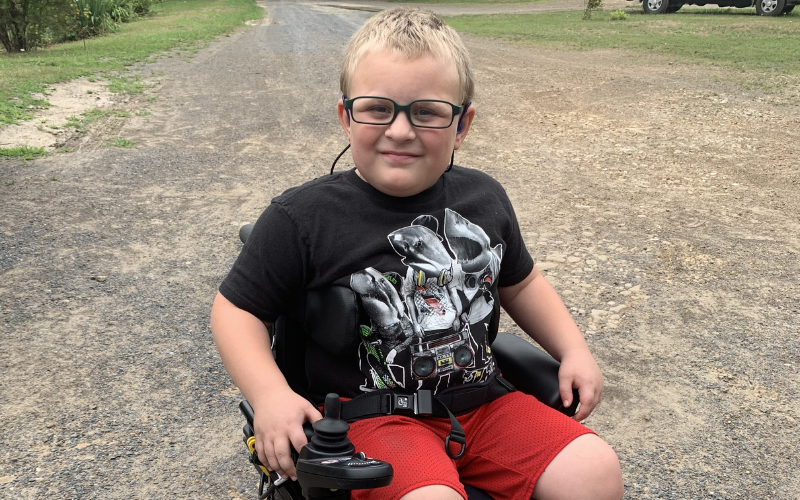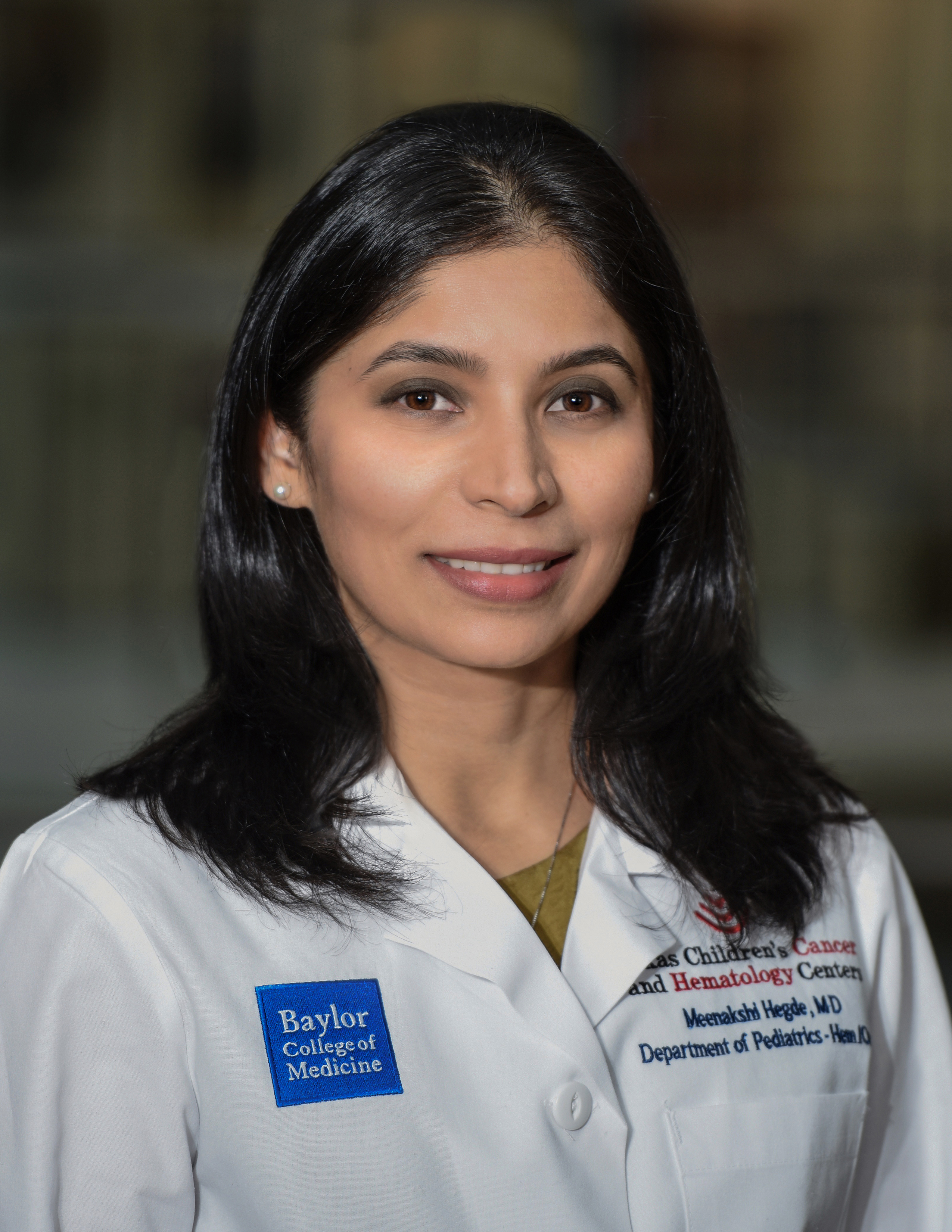
Leevi was diagnosed at age 2 with ependymoma and relapsed at age 5. After frontline treatment failed, Leevi enrolled in a clinical trial.
By: Trish Adkins
Oncology researcher Dr. Meenaskshi Hegde, from Texas Children’s Hospital, is working to change the outcome for kids facing ependymoma and to ensure that treatments are available at several institutions.
Using Alex's Lemonade Stand Foundation (ALSF) Center of Excellence (COE) grant funding, Dr. Hegde is leading a Phase 1 study of CAR T cells for patients with refractory or relapsed ependymoma. The study, which opened in early 2022 at three children’s hospitals, will give patients access to treatment closer to home. Local approval is also underway at three more hospitals.
Ependymoma, the third most common type of pediatric brain tumor, is notoriously unresponsive to standard chemotherapies. For the approximately 200 children diagnosed each year, the best treatment option is surgical removal followed by radiation therapy.
This works for some children, but for children who have ependymoma that has returned or was never gone in the first place, the options are limited. Often, these children are offered surgery and sometimes, repeat radiation. But then families are left with uncertainty—clinical trials offer some hope, but not a sure cure, and often trials are located at out-of-town hospitals.
This leaves families with complicated decisions and sometimes far away without a local support network. Alex’s Lemonade Stand Foundation (ALSF) offers support for families traveling for treatment through the Travel For Care program, which has helped 170 families so far in 2022. But still, pediatric brain tumors remain the deadliest form of childhood cancer.
Access to safer treatment and cures is desperately needed for kids facing hard-to-treat cancers like ependymoma.
Changing Outcomes for Kids with Ependymoma
Not only do multisite clinical trials allow more patients to access potentially lifesaving treatment while supporting a higher quality of life, but they can also increase the pace of discovery by increasing trial enrollments. More enrollments can provide researchers with more data that they can use to push the trial forward to the next phase of discovery.
“If this kind of treatment is going to make a big difference, it has to be available beyond just a few centers, and we’re pushing that envelope,” said Dr. Stacey Berg, the co-director of Texas Children’s Cancer Center Developmental Therapeutics Program.
Texas Children’s Hospital is one of ALSF’s Center of Excellence grant-funded institutions. ALSF provides COEs with support to build clinical trial infrastructure. Between 2020-2021, the four COE’s have had 55 ongoing clinical trials aimed at finding safer treatments and cures for all types of childhood cancer.
The Potential of CAR T Immunotherapy for Ependymoma
For the treatment of ependymoma and other malignant brain tumors, research into CAR T immunotherapy is still in the early phases. CAR T immunotherapy has been successful in the treatment of certain types of pediatric leukemia. In 2017, it was granted FDA approval as a treatment for children with B-cell acute lymphoblastic leukemia (ALL) who have relapsed or didn’t respond to standard regimens.
CAR T cell immunotherapy works by making use of a patient’s own immune cells, which are genetically modified to seek out and kill cancer cells. Researchers know that CAR T cells can get into the central nervous system; but there is still the challenge of understanding the mechanisms by which brain tumors keep T cells out and hide from the immune system.
The hope is that this trial offers more insights into the potential of CAR T immunotherapy for kids with ependymoma, opening the door to more studies that can help kids with other malignant brain tumors.

